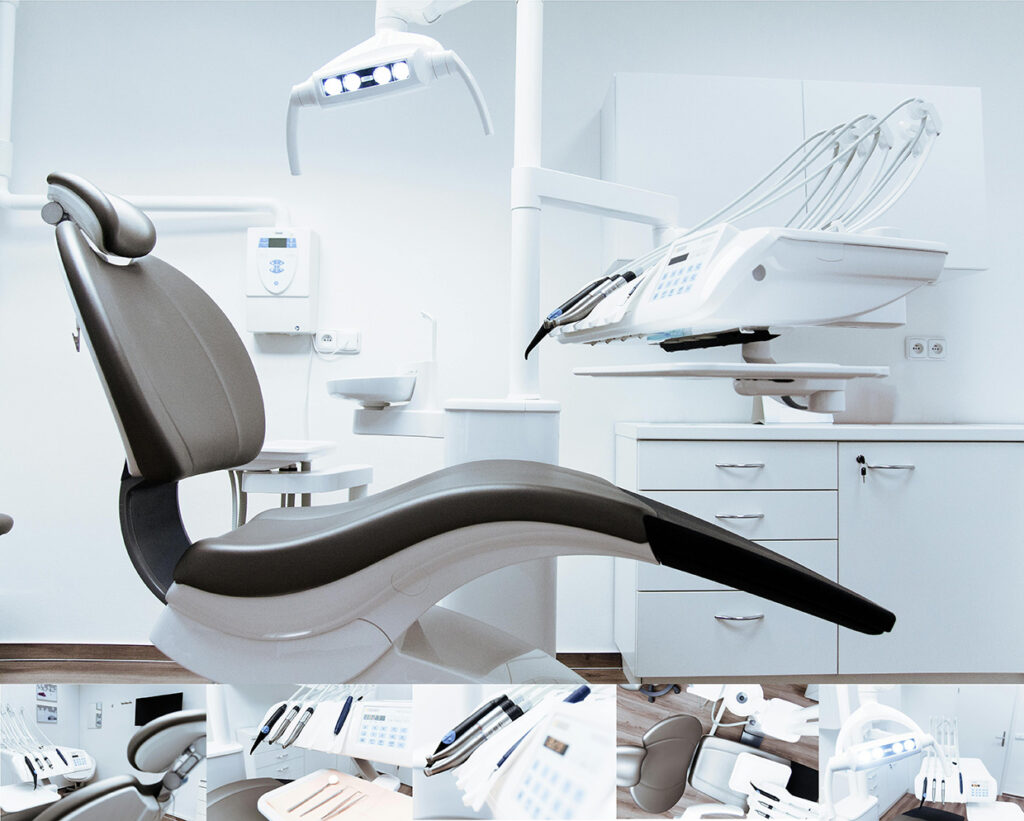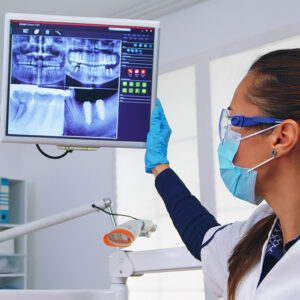Imagine combining a much-needed dental procedure with an exotic vacation. This intriguing concept is known as dental tourism, a growing trend where individuals travel abroad for dental care, often to save on costs while enjoying a new destination. But is this truly a worthwhile endeavor? As with any significant decision, understanding the pros and cons of dental tourism is crucial.
For many in the United States, the high cost of dental treatments can be a deterrent to achieving the perfect smile. This is where dental tourism offers a compelling alternative. Countries like Colombia and Türkiye are becoming popular destinations, offering high-quality dental procedures at a fraction of the cost compared to the U.S. However, the allure of cost savings must be weighed against potential challenges, such as ensuring the quality of care and managing travel logistics.
In this blog post, we’ll delve into the key advantages and potential drawbacks of dental tourism. We’ll explore how thorough research and proper planning can help mitigate risks and enhance your experience. Join us as we unpack the essential considerations for those contemplating dental tourism.
Understanding Dental Tourism: What You Need to Know
Dental tourism is a fascinating phenomenon where individuals travel to foreign countries to receive dental care. This approach is primarily driven by the potential for significant cost savings and access to advanced treatments that may not be readily available or affordable in their home countries. Countries like Colombia and Türkiye have emerged as popular destinations due to their reputation for providing high-quality dental services at a fraction of the cost found in the United States.
However, while the allure of affordable dental care is strong, it’s essential to consider the logistics involved in such a journey. From travel arrangements to post-operative care, there are multiple factors to weigh before embarking on a dental tourism trip. Understanding these elements can help ensure a smooth and successful experience.
Popular Destinations and Treatments
Several countries have become hotspots for dental tourism, each offering unique advantages. Here are some of the most sought-after destinations:
- Colombia: Known for its skilled dentists and modern clinics, Colombia offers treatments like All-on-4 dental implants and smile design with porcelain veneers.
- Türkiye: Offers a blend of affordable dental care and vacation opportunities, with services such as dental implants and crowns.
- Mexico: Proximity to the U.S. makes it a convenient option for many, with popular treatments including veneers and dental crowns.
Patients often seek treatments such as dental implants, veneers, and full mouth restorations. These procedures are not only cost-effective but also performed by experienced professionals using advanced technology.
Interested in why it’s so affordable? Check out our blog Why Is Colombian Dental Care So Cheap?
Reasons for Choosing Dental Tourism
Many individuals opt for dental tourism due to the high cost of dental procedures in their home countries. In the United States, for example, dental care can be prohibitively expensive, prompting patients to look for more affordable options abroad. Additionally, some countries offer specialized treatments that may not be available locally.
Another compelling reason is the opportunity to combine dental care with travel. Patients can enjoy a vacation in an exotic location while receiving the dental treatments they need. This dual benefit makes dental tourism an attractive option for those seeking both medical and leisure experiences.
Considerations for Dental Tourism
Before deciding on dental tourism, it’s crucial to conduct thorough research. Consider the qualifications and experience of the dentists, the reputation of the clinic, and the quality of materials used. It’s also important to factor in travel costs and the logistics of post-operative care.
Patients should ensure that the chosen dental facility adheres to international standards for hygiene and safety. Communication can be another challenge, so verifying that the clinic staff speaks your language or provides translation services is essential.
Benefits of Dental Tourism: Cost and Quality
Dental tourism offers a unique opportunity to combine necessary dental procedures with travel, providing significant advantages in terms of cost savings and quality of care. Patients often find that they can receive high-quality dental treatments abroad at a fraction of the cost compared to their home countries, particularly in the United States. This cost-effectiveness is a major draw for many individuals seeking comprehensive dental solutions.
Moreover, many international dental clinics utilize the same advanced materials and technologies as those used in the U.S., ensuring that the quality of care is not compromised. This section will explore these benefits in detail, providing insights into why dental tourism is becoming an increasingly popular choice.
Cost Savings
The most compelling reason for choosing dental tourism is the potential for substantial cost savings. In countries like Colombia, dental procedures can be up to 70% cheaper than in the United States. For example, an All-on-4 dental implant procedure that might cost between $24,000 and $32,000 in the U.S. can be available for as low as $6,500 in Colombia, including accommodations and transportation.
This affordability is primarily due to lower overhead costs, such as salaries and real estate, in these countries. Additionally, the absence of high malpractice insurance costs contributes to the reduced prices. Patients can thus achieve their desired dental transformations without breaking the bank.
Quality of Care
Despite the lower costs, the quality of dental care in many popular dental tourism destinations is comparable to, or even exceeds, that available in the U.S. Many clinics abroad are equipped with state-of-the-art technology and staffed by highly trained professionals. For instance, Colombian dental clinics often use CAD/CAM technology and high-quality materials like emax for veneers, ensuring precise and durable results.
Furthermore, many international clinics adhere to stringent hygiene and safety standards, often certified by global health organizations. This commitment to quality ensures that patients receive care that meets or surpasses international standards.
Materials and Technologies Used
One of the key factors contributing to the high quality of dental care abroad is the use of advanced materials and technologies. Many clinics in countries like Colombia and Türkiye use the same dental materials as those found in the U.S., such as titanium implants from reputable brands like Straumann.
Additionally, these clinics often employ cutting-edge technologies, including digital imaging and 3D printing, to enhance the precision and effectiveness of treatments. This technological parity ensures that patients do not have to compromise on quality when opting for more affordable dental solutions abroad.
Potential Risks and Challenges of Dental Tourism
While dental tourism can offer significant cost savings and the opportunity to explore new destinations, it is not without its challenges. Understanding these potential risks is crucial for anyone considering traveling abroad for dental care. From language barriers to varying dental standards, being aware of these issues can help you make informed decisions and ensure a positive experience.
One of the primary concerns is the difference in dental standards across countries. While many international clinics maintain high standards, others may not adhere to the same level of care as those in the United States. This can lead to complications such as infections or unsatisfactory results. Therefore, it’s essential to conduct thorough research and choose clinics that are accredited and have positive reviews from past patients.
Language Barriers
Communication is a vital part of any medical procedure, and dental care is no exception. Language barriers can pose significant challenges when discussing treatment plans, understanding post-operative care instructions, or expressing concerns. Miscommunication can lead to misunderstandings about the procedure or unexpected outcomes.
To mitigate this risk, consider choosing clinics that offer translation services or have English-speaking staff. You can also prepare by learning basic phrases in the local language or using translation apps to facilitate communication.
Follow-up Care Challenges
Another challenge of dental tourism is the difficulty in accessing follow-up care. Dental procedures often require follow-up visits to ensure proper healing and address any complications. Traveling back to the country where the procedure was performed can be costly and inconvenient.
To address this, plan for extended stays if necessary or ensure that your local dentist is willing to provide follow-up care. Some international clinics may offer remote consultations to assist with post-operative care, so inquire about these options before your trip.
Varying Dental Standards
Dental standards can vary significantly from one country to another. While some countries have rigorous regulations and high-quality care, others may not. This can lead to discrepancies in the materials used, the hygiene standards maintained, and the overall quality of the dental work.
Researching the clinic’s credentials, reading patient reviews, and verifying their adherence to international standards can help mitigate this risk. Look for clinics that are accredited by reputable organizations and have a track record of successful treatments.
- Research thoroughly: Check the clinic’s accreditation and read reviews from previous patients.
- Verify language capabilities: Ensure that the clinic has English-speaking staff or offers translation services.
- Plan for follow-up care: Arrange for local follow-up care or inquire about remote consultation options.
By taking these precautions, you can reduce the risks associated with dental tourism and enjoy the benefits of affordable dental care abroad. For more information on how Aleriom can assist you in navigating these challenges, visit our website.
Making an Informed Decision on Dental Tourism
As we wrap up our exploration of the pros and cons of dental tourism, it’s essential to reflect on the key factors that can guide your decision-making process. Dental tourism presents a compelling opportunity to achieve significant cost savings and access high-quality dental care abroad. However, it also requires careful consideration of potential challenges such as varying dental standards and logistical complexities.
To ensure a successful dental tourism experience, consider the following key takeaways:
- Research Thoroughly: Investigate the qualifications and reputation of the dental clinic and practitioners. Look for clinics that are accredited and have positive reviews from past patients.
- Plan for Logistics: Factor in travel costs, accommodation, and the logistics of post-operative care. Ensure you have a plan for follow-up care, whether locally or remotely.
- Assess Language Capabilities: Confirm that the clinic offers translation services or has English-speaking staff to avoid miscommunication.
While dental tourism can offer significant advantages, it’s crucial to weigh these against your personal needs and circumstances. Ask yourself: Are you comfortable with international travel for medical procedures? Can you manage potential language barriers and follow-up care logistics? These considerations will help you make an informed decision.
If you’re contemplating dental tourism, consulting with a dental tourism expert can provide personalized advice tailored to your specific needs. At Aleriom, we are dedicated to guiding you through this journey, ensuring a safe and affordable dental transformation. For more insights and resources, visit our website and discover how we can assist you in achieving your dream smile.








